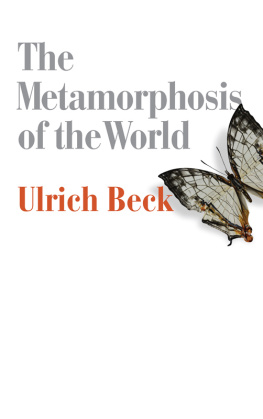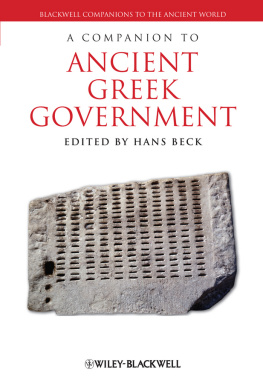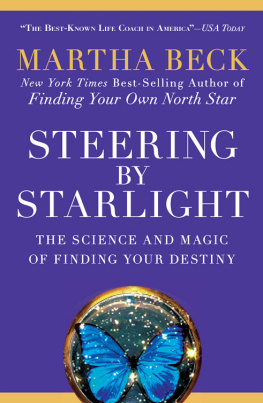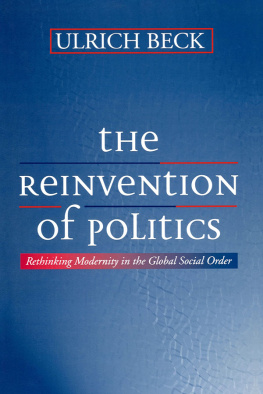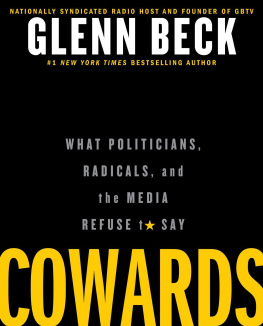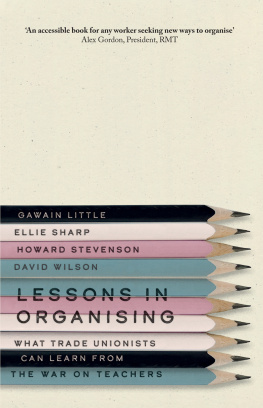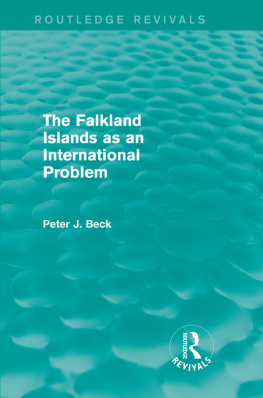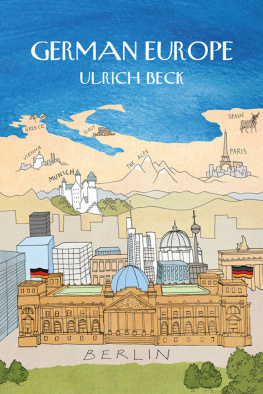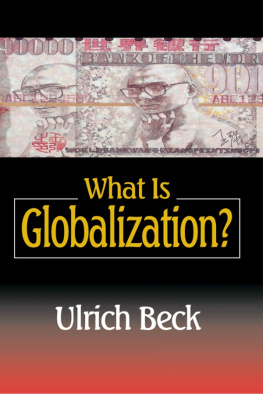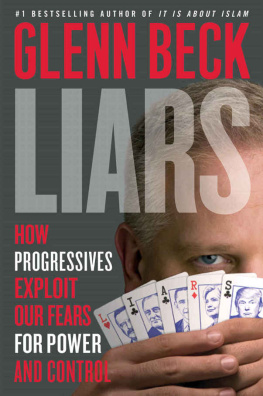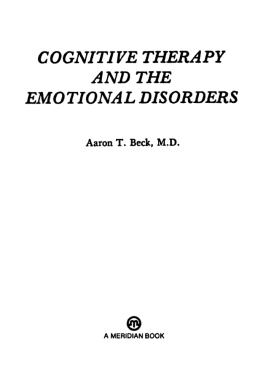International community organising
Taking power, making change
Dave Beck and Rod Purcell
First published in Great Britain in 2013 by
Policy Press
University of Bristol
Fourth Floor
Beacon House
Queens Road
Bristol BS8 1QU
UK
t: +44 (0)117 331 4054
f: +44 (0)117 331 4093
www.policypress.co.uk
North America office:
Policy Press
c/o The University of Chicago Press
1427 East 60th Street
Chicago, IL 60637, USA
t: +1 773 702 7700
f: +1 773-702-9756
www.press.uchicago.edu
Policy Press 2013
British Library Cataloguing in Publication Data
A catalogue record for this book is available from the British Library.
Library of Congress Cataloging-in-Publication Data
A catalog record for this book has been requested.
ISBN 978 1 84742 976 6 paperback
ISBN 978 1 84742 977 3 hardcover
The right of Dave Beck and Rod Purcell to be identified as authors of this work has been asserted by them in accordance with the Copyright, Designs and Patents Act 1988.
All rights reserved: no part of this publication may be reproduced, stored in a retrieval system, or transmitted in any form or by any means, electronic, mechanical, photocopying, recording, or otherwise without the prior permission of Policy Press.
The statements and opinions contained within this publication are solely those of the editors and contributors and not of the University of Bristol or Policy Press. The University of Bristol and Policy Press disclaim responsibility for any injury to persons or property resulting from any material published in this publication.
Policy Press works to counter discrimination on grounds of gender, race, disability, age and sexuality.
Cover design by Andrew Corbett
Front cover: image kindly supplied by istock
Printed and bound in Great Britain by Hobbs the Printers, Southampton
Policy Press uses environmentally responsible print partners
Readers Guide
This book has been optimised for PDA.
Tables may have been presented to accommodate this devices limitations.
Image presentation is limited by this devices limitations.
We must believe that it is the darkest before the dawn
of a beautiful new world.
We will see it when we believe it.
Saul Alinsky
Contents
Dave Beck initially trained as a primary school teacher and has worked in community development in the voluntary and statutory sectors since the mid-1980s, both in Nottingham and Glasgow. He has also developed a wide range of community-based adult education programmes within further education and the UK governments City Challenge initiative.
He writes on a wide range of issues related to community development, including the place of radical education in supporting community change, community development approaches to dealing with drug addiction, social capital and social change, and higher education and community partnerships to develop participation.
Currently, he manages the post-graduate programmes in community development at the University of Glasgow. He is also a board member of International Association for Community Development and the Federation for Community Development Learning.
Rod Purcell has degrees from the Universities of Wales, Glasgow and London. He trained as a community development worker and has practised in a range of communities in the West of Scotland, including a multi-ethnic community in the inner city of Glasgow. He then worked as community development consultant before coming to the University of Glasgow to establish their community development programme. He was head of the Department for Adult and Continuing Education and is currently director for community engagement. Rod is the author of a range of community development-related publications, and he has particular interest in urban culture and psychogeography.
Rod is a past chair of the Federation for Community Development Learning and board member of the International Association for Community Development. He is also a Fellow of the Royal Geographical Society.
Note: For purposes of attribution Dave Beck is the author of were co-written.
Power concedes nothing without a demand. It never did and it never will. (Frederick Douglass)
Community organising has a diverse history going back to the social welfare movements of the 19th century, and it first came to prominence through the work of Saul Alinsky in Chicago in the US in the late 1930s and 1940s. Alinsky wanted to build what he called organisations of organisations that would enable poor communities to claim power. In doing so they would have more control over their own lives, bring increased resources and improved services to their community and engage more fully in the democratic process. His book, Rules for radicals, outlining how this process would work, is subtitled A pragmatic primer for realistic radicals (1971). It is a book about radical change to make the system work for the dispossessed; it is not about revolutionary change. This is the objective of community organising, and we have taken his phrase, realistic radicals, as the theme of this book.
The promise of community organising saw its rapid expansion in the US through Alinskys organisation, the Industrial Areas Foundation (IAF), until recently through ACORN (Associations of Community Organizations for Reform Now) established by Wade Rathke, and other organisations such as Gamaliel (see www.gamaliel.com ). Community organising has spread to Canada, the UK, Australia, the Indian Sub-continent, South East Asia, Africa and South America. It has taken many forms, from international networks such as Slum Dwellers International (SDI) to small and more localised operations.
This book seeks to explore the diverse history of community organising, to tell some of the stories of how it developed, its successes and failures, and the lessons that can be applied today. People always have, and always will, struggle to improve their living conditions, their quality of life, to bring hope for their childrens future and to make democracy a reality. At the time of writing the Arab Spring is still working through, with improved freedom and optimism in Tunisia and Libya to resistance to continued violent oppression in Syria. In other countries the Occupy Movement expresses the same desires and motivations. Community organising offers a realistic way forward for many communities. While it is not a magic bullet for progressive change, it is a tried and tested way of improving peoples lives. This book will hopefully be useful for many engaged in such struggles.
In producing the book we made field visits and conducted interviews in the US, Australia, Cambodia, India, South Africa and the UK. We wish to thank the many people, community organisers and local people who made us welcome, told us their stories and gave us the benefit of their experience and analysis. We hope we have done justice to their work.
About the book
In we explore the basic ideas of community organising as developed by Alinsky. We ask what was he trying to do, what are the values, principles and processes that underpin community organising, and crucially, why we should organise communities in this way.
asks the question, what is community organising for in the 21st century? The US has changed greatly since the first community organisation was established in the Back of the Yards, the meat packing district of Chicago, in 1939. Community organising takes place in developed, developing and very poor countries across the world. What issues should community organisations be focusing on and what processes should they use? Can we develop criteria to examine the effectiveness of community organisations? This chapter discusses a range of factors from leadership development to building social capital, from the Millennium Development Goals of the United Nations (UN) to ideas around quality of life and wellbeing. These factors are used later evaluate the contribution of community organising.



